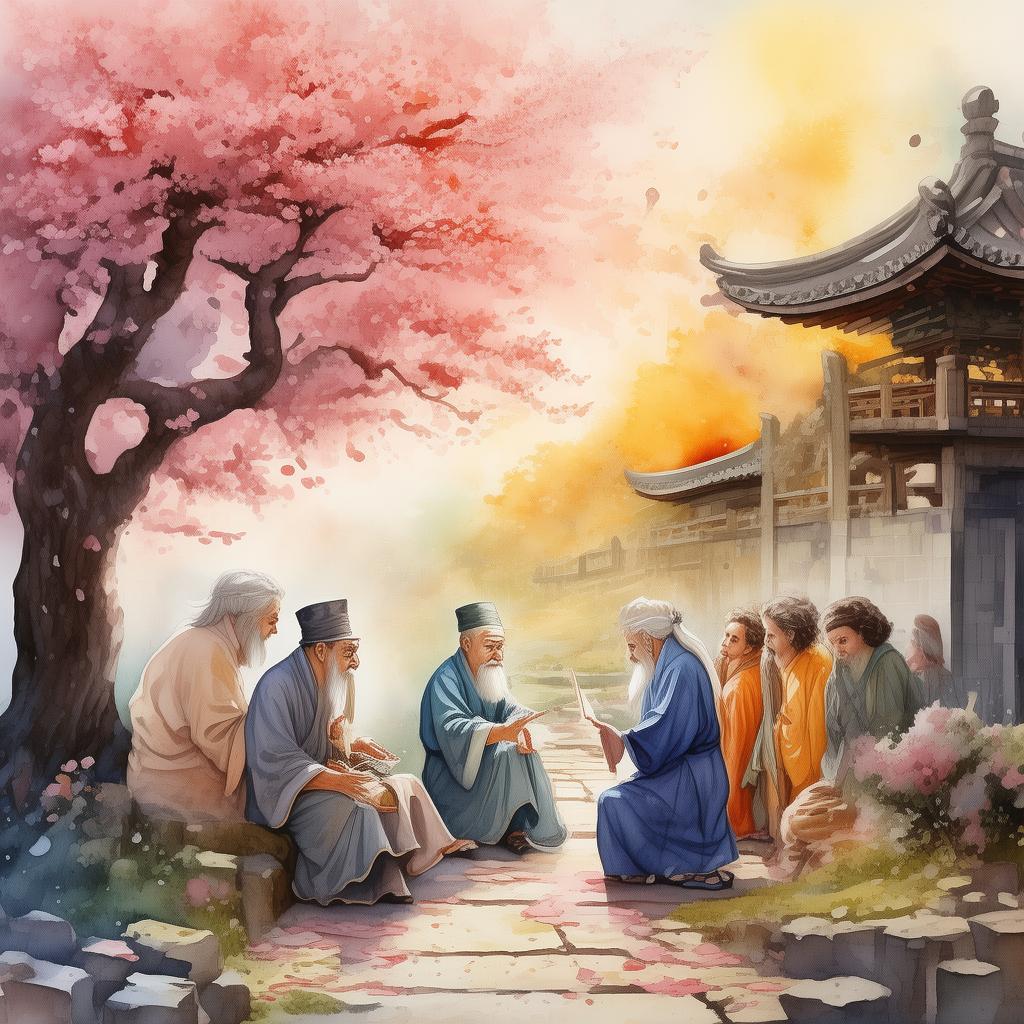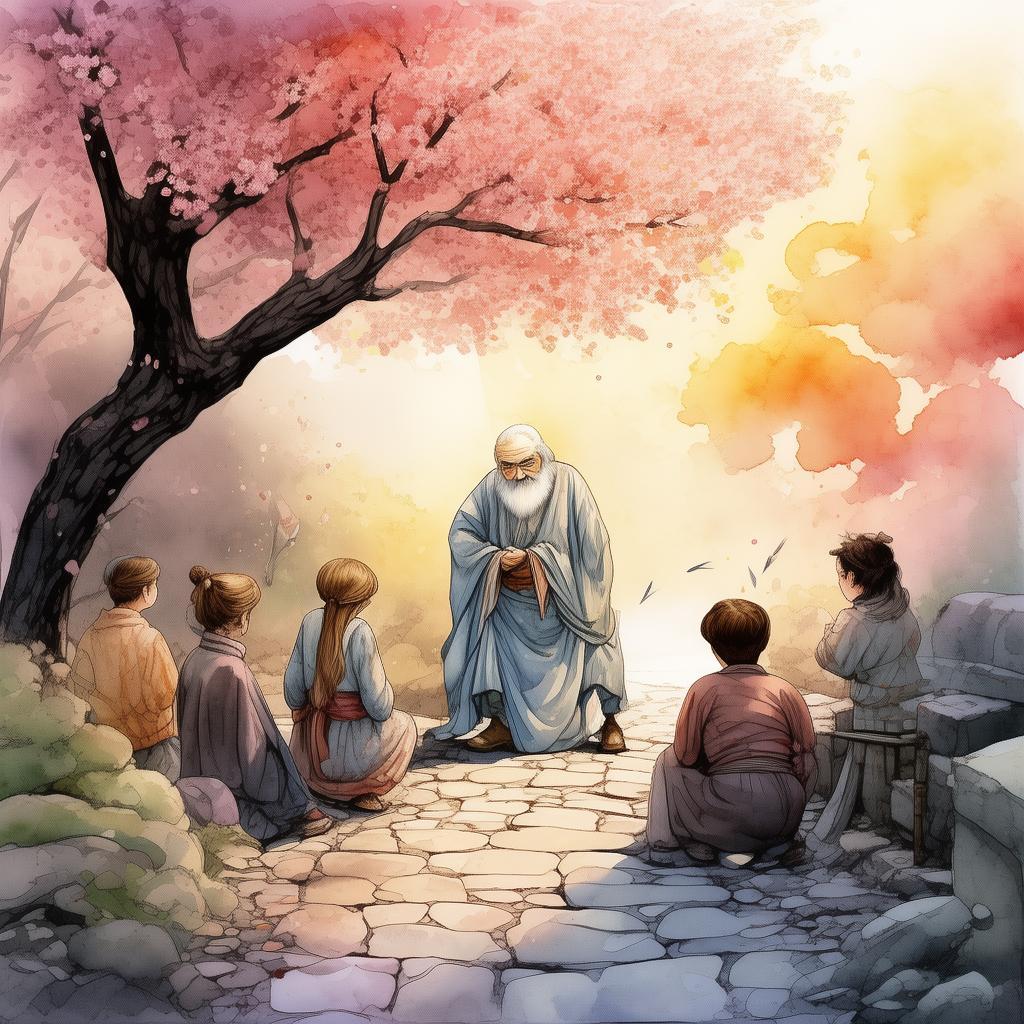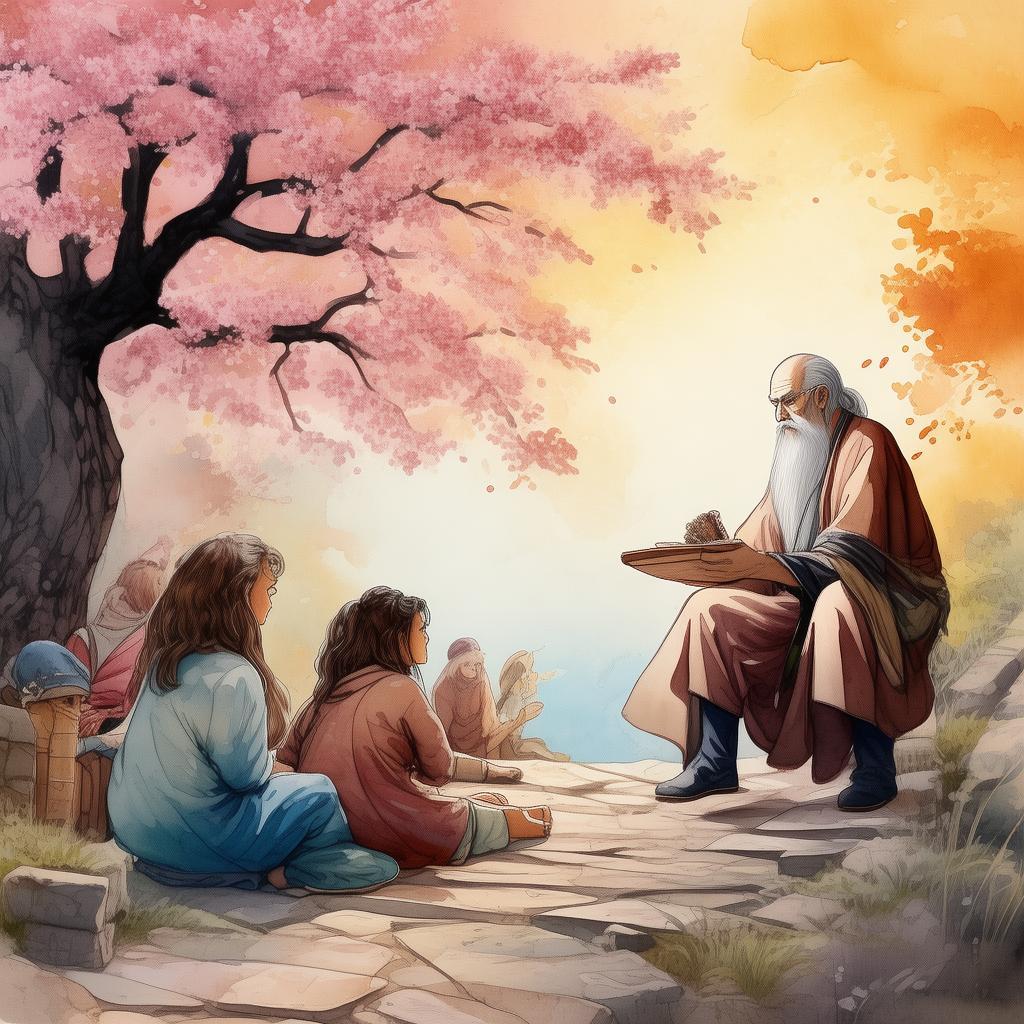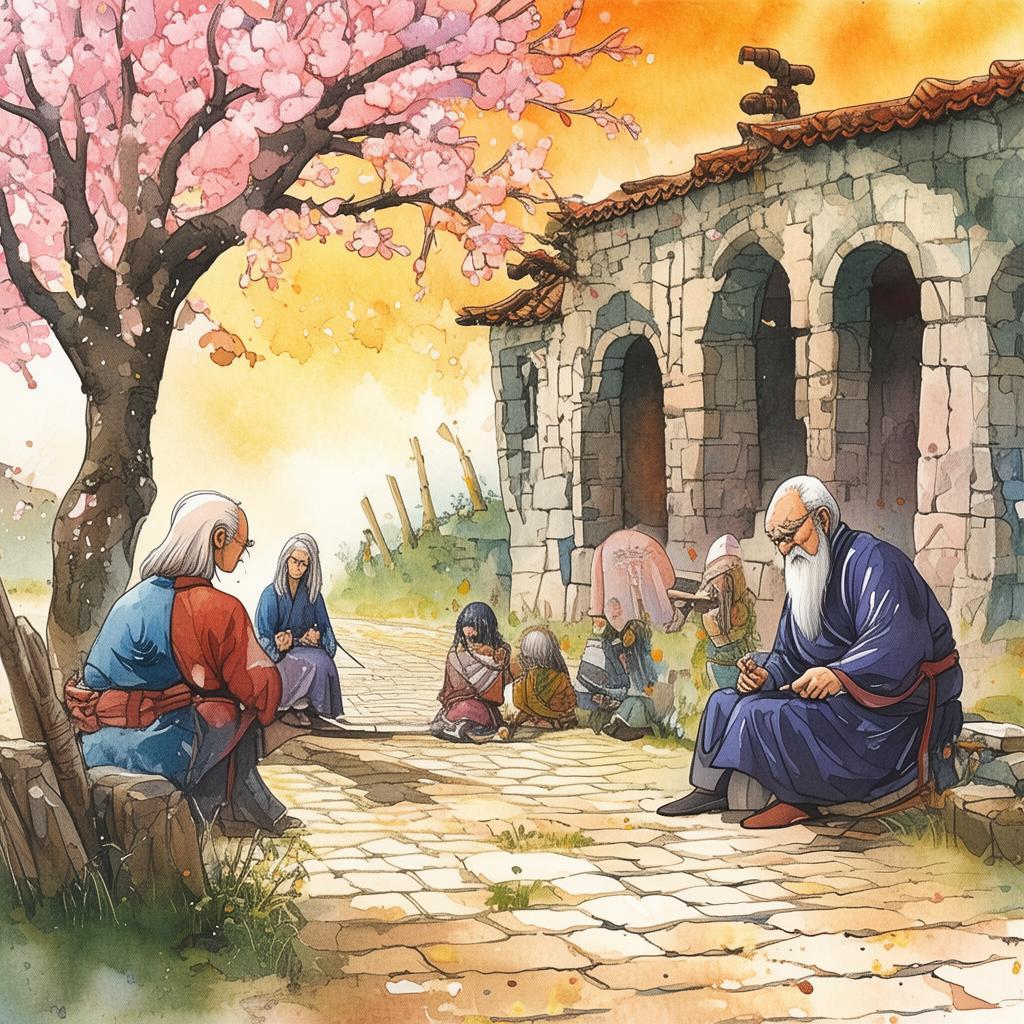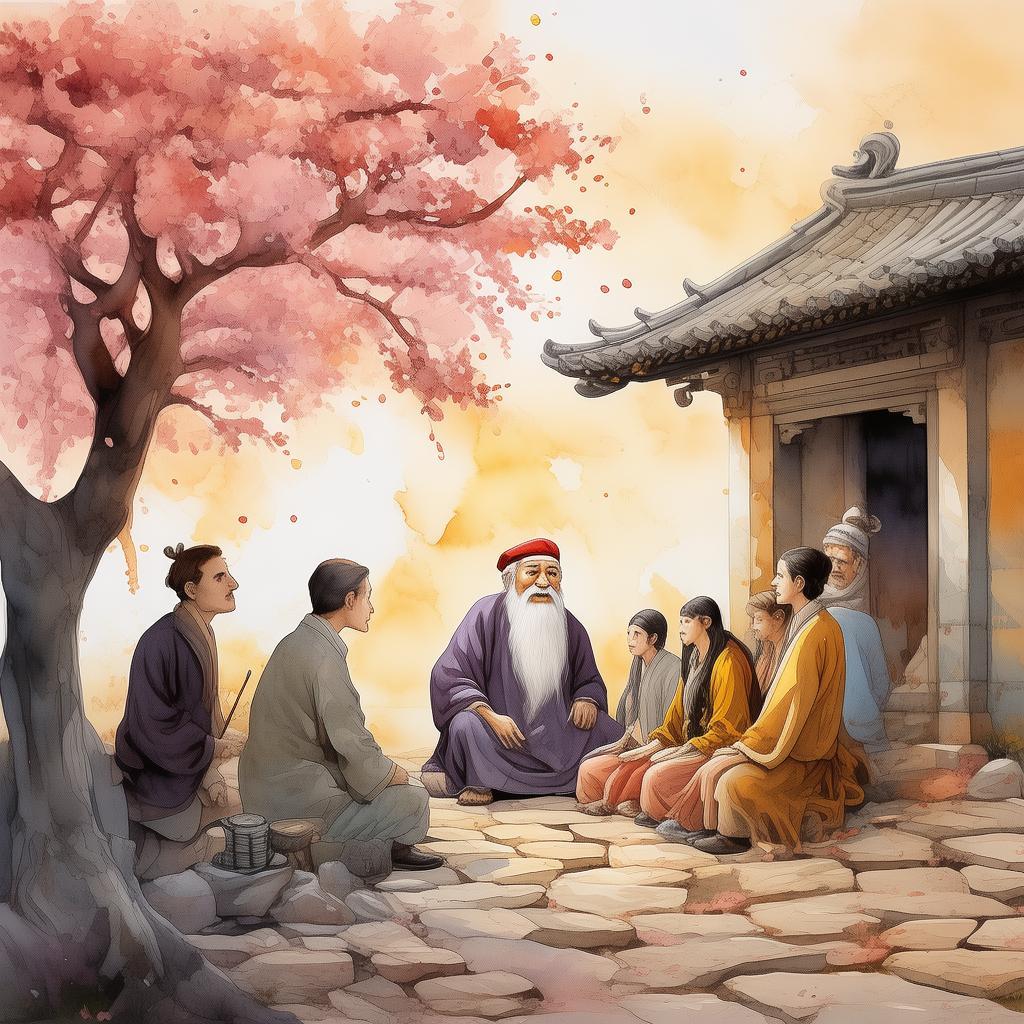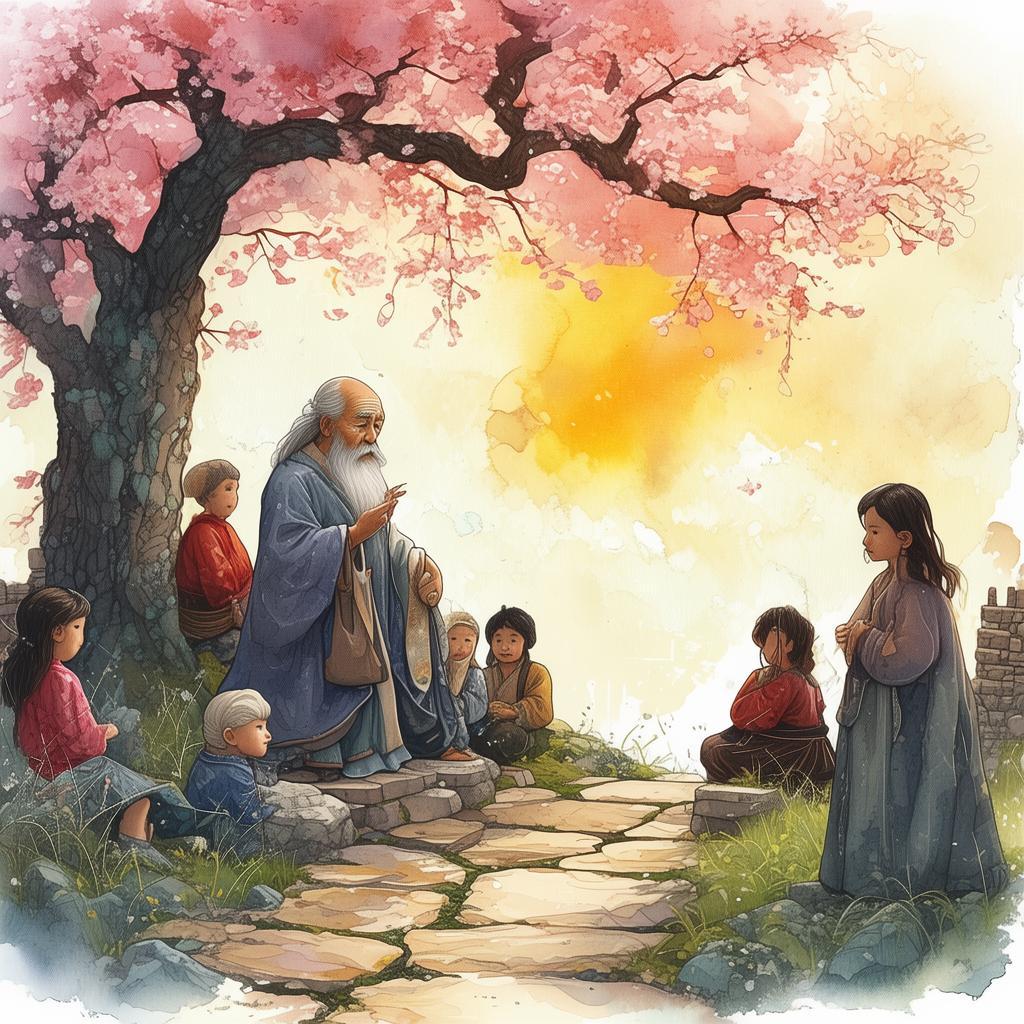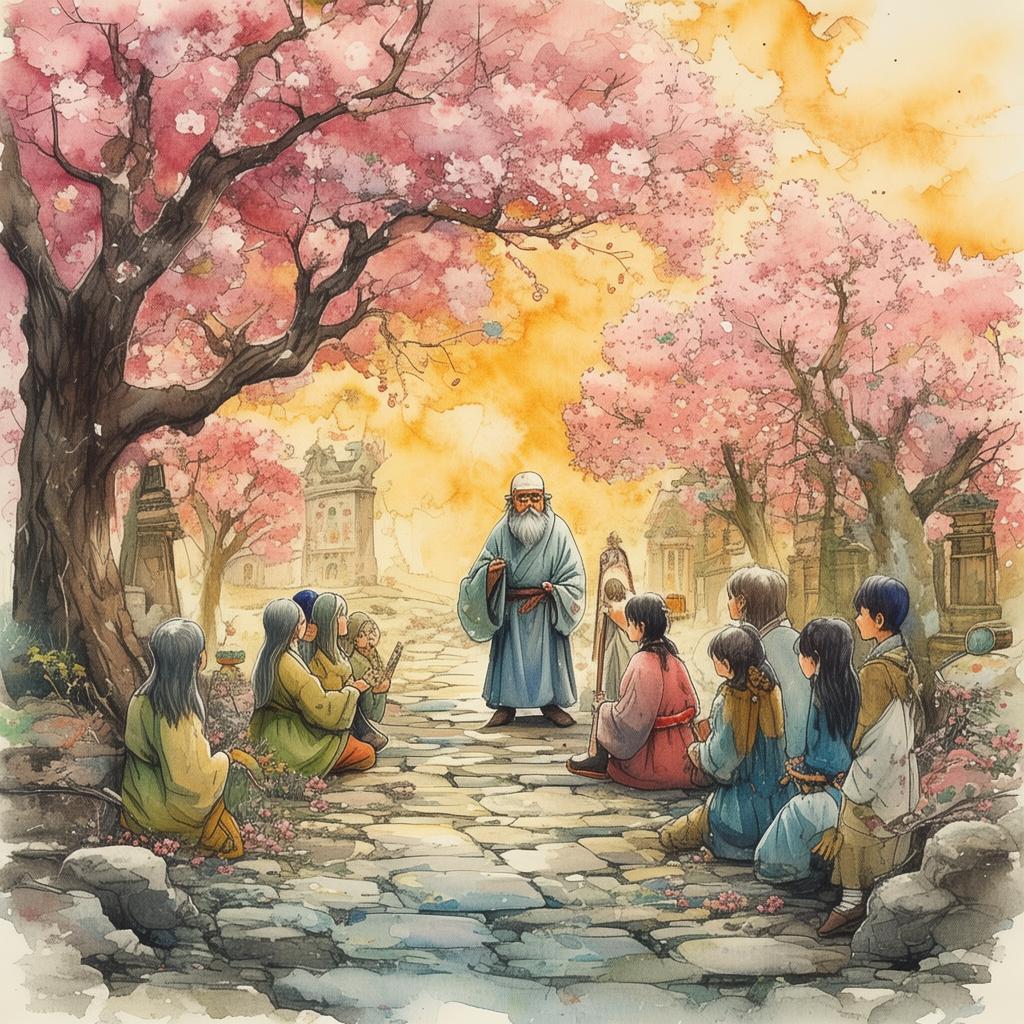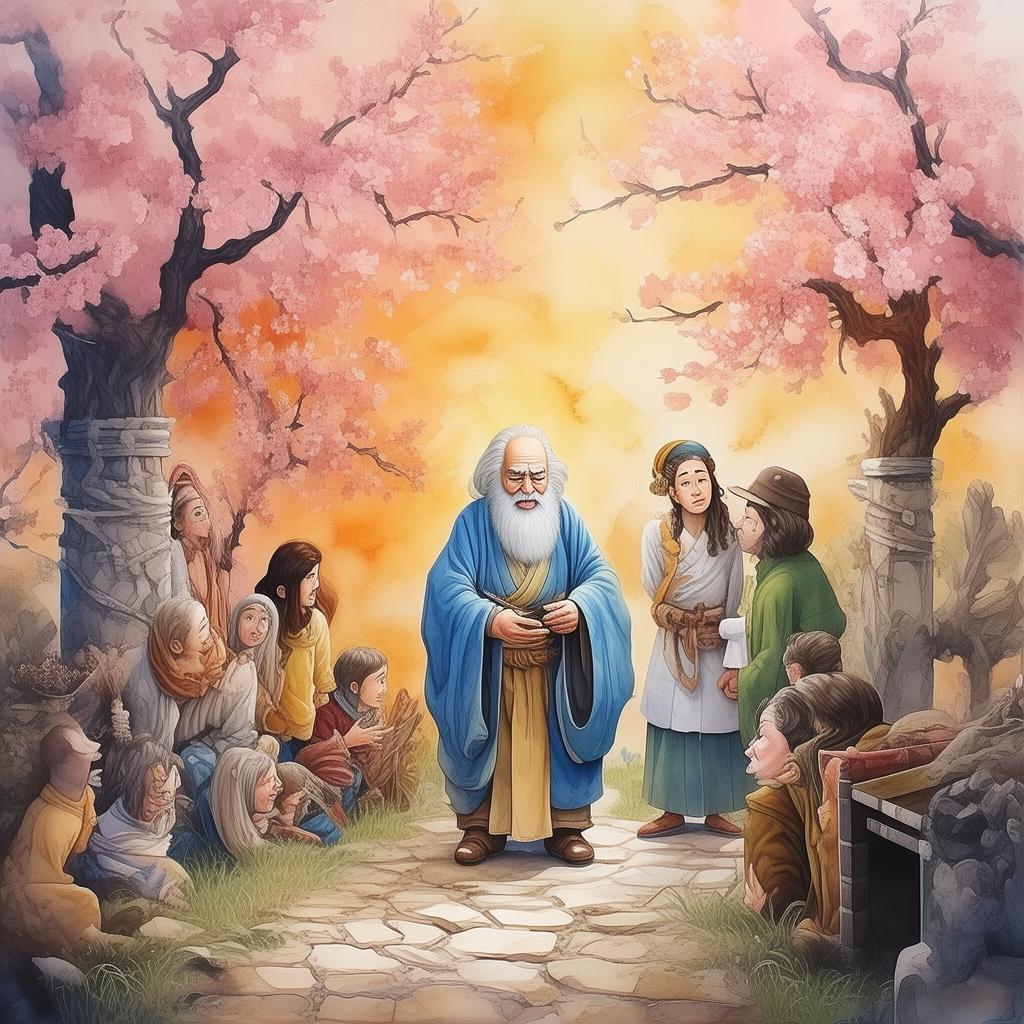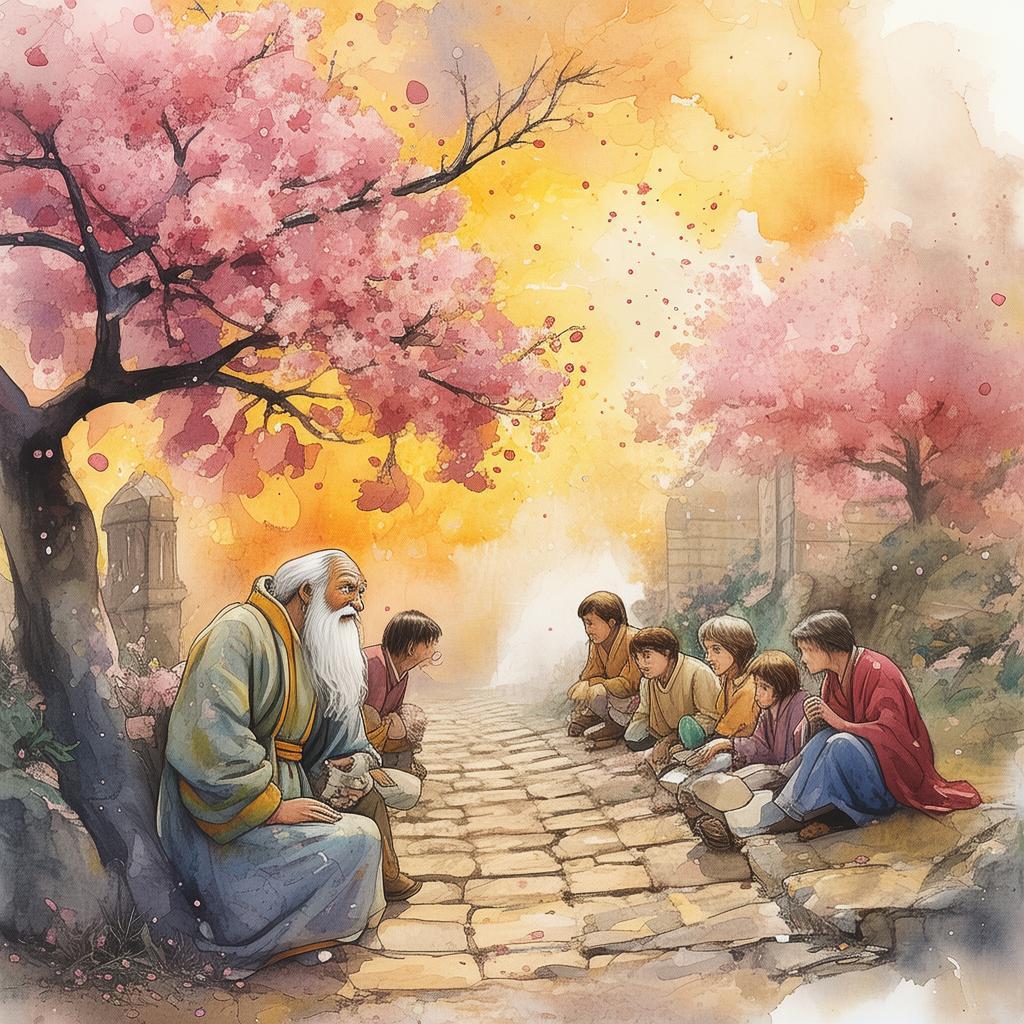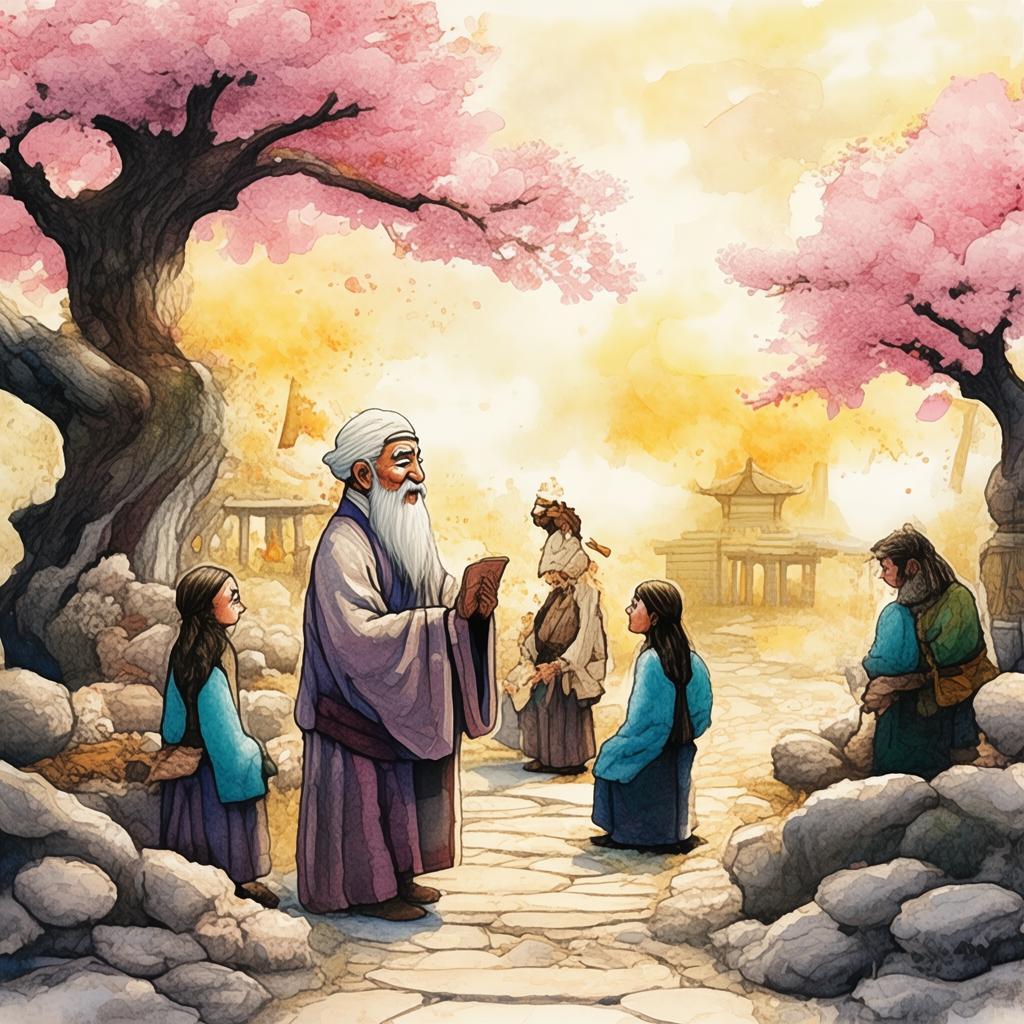The Resonant Melody of the Heart
In the quaint village of Lingxi, nestled between rolling hills and whispering rivers, there lived a young man named Ming. Ming was an extraordinary musician, his fingers dancing across the guqin like a lover's caress. His melodies were said to have the power to heal the soul, and his music echoed through the valleys, reaching the hearts of all who heard it.
Ming was the son of a renowned composer, but his parents had passed away when he was but a child. The village, however, was filled with tales of his parents' love, a love that was as strong as the mountains and as deep as the sea. Ming's mother was a gifted singer, and his father, a maestro of the guqin. Their music was the heartbeat of the village, and Ming had inherited their passion, though not their talent quite as profoundly.
As he grew, Ming would often hear the echoes of his parents' music, blending with the whispers of the wind and the babbling of the streams. These echoes became his companions, his comfort in the silence of night, and his guide in the darkness of loss. But there was a void in Ming's heart, a space that only the music of his parents could fill.
One day, as Ming wandered through the forest, he stumbled upon an ancient, abandoned temple. Inside, he found a dusty scroll, covered in cryptic symbols. As he unrolled it, he realized it was a melody, a composition by his parents, one that they had never performed. The music was beautiful, haunting, and filled with a depth of emotion that Ming had never known before.
As he played the melody, the echoes of his parents' music seemed to amplify, as if the spirits of the past were reaching out to him. Ming felt a strange connection, as if the music was a key to unlocking the secrets of his parents' love. But as he played, something odd happened. The melody seemed to resonate not just within him, but within the very essence of the forest itself.
The trees swayed gently, the leaves rustling in harmony with the music. The birds sang melodiously, and the river's flow seemed to synchronize with the rhythm. Ming realized that the music was not just a piece for the guqin, but a symphony of the heart, a testament to the interconnectedness of all living things.
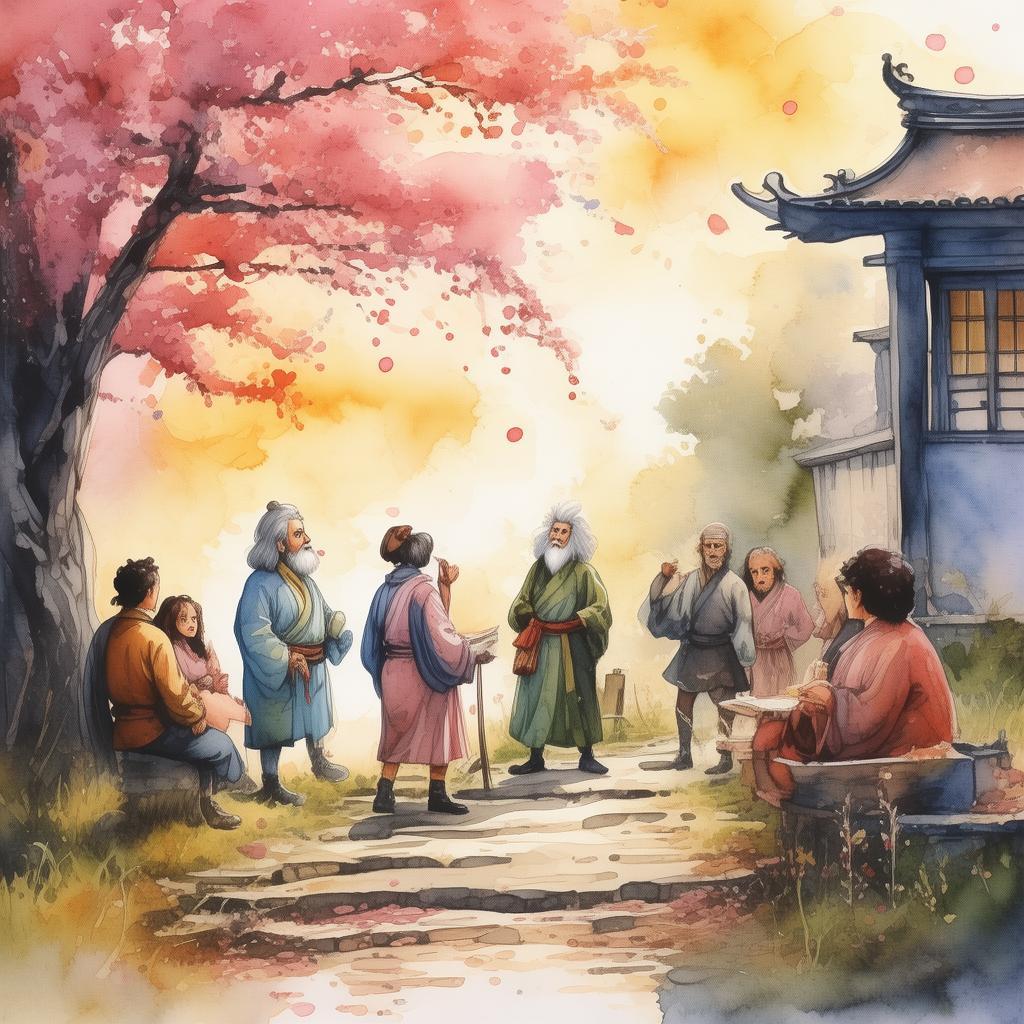
As he played, Ming began to understand the true meaning of the phrase 'Echoes of the Heart'. The echoes were not just the echoes of his parents' music, but the echoes of the love they shared, the echoes of the life they lived together. These echoes were the heartbeat of the forest, the heartbeat of the village, and the heartbeat of the world.
The villagers gathered around Ming, drawn by the music, and they listened in awe. Ming's guqin became the voice of the earth, the voice of the sky, and the voice of the heart. He realized that his parents' music was not just a legacy, but a gift, a gift that would continue to resonate through time.
Days turned into weeks, and Ming's music traveled far and wide. People from distant lands came to hear the echoes of the heart, and they were transformed by the music, their hearts opening to the beauty of love, loss, and connection. Ming became a bridge between the past and the present, a reminder that love is eternal and that the echoes of the heart are the truest testament to the human spirit.
In the end, Ming's music became a part of the village, a part of the world. It was the heartbeat of the heart, a melody that would never fade. And Ming, the young musician who had once sought to fill the void in his heart, found that the echoes of his parents' love had become the echo of his own.
The Resonant Melody of the Heart was not just a story of Ming's journey, but a story of the journey of the heart itself. It was a story that showed us that love is the universal language, that loss is the bridge to understanding, and that the echoes of the heart are the most powerful force in the universe.
✨ Original Statement ✨
All articles published on this website (including but not limited to text, images, videos, and other content) are original or authorized for reposting and are protected by relevant laws. Without the explicit written permission of this website, no individual or organization may copy, modify, repost, or use the content for commercial purposes.
If you need to quote or cooperate, please contact this site for authorization. We reserve the right to pursue legal responsibility for any unauthorized use.
Hereby declared.
